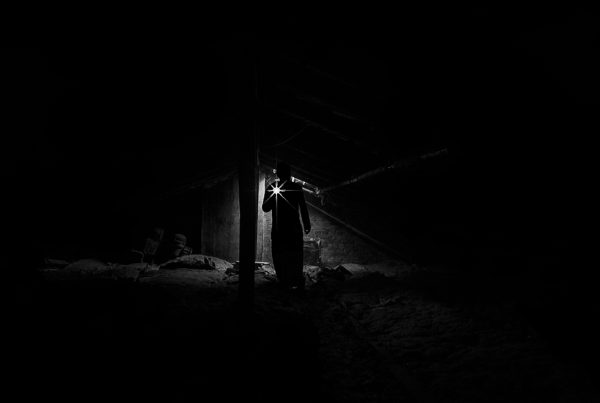Challenging the Way We Approach Mental Health in Our Communities
Society’s attitudes towards mental health create all sorts of opinions driven by cultural norms and expectations, gender-based expectations, and societal changes over time. These attitudes shape the way a person struggling mentally is viewed and treated, as well as the way a person views themselves. We have come a long way from the era of the stiff upper-lip where one was expected to ‘keep calm and carry on.’ Talk of mental health awareness is becoming more and more common, particularly since the 2020 Pandemic. It’s okay not to be okay. However, we still have a lot of work to do when it comes to understanding, and holding negative attitudes and opinions about mental health. Negative attitudes create public stigma and breed internalised negative attitudes and internalised shame, known as ‘self-stigma’.
One of the ways in which the stigma arises, is due to the type of language used to describe someone with poor mental health known as ‘labelling’. Adjectives such as ‘crazy’ or ‘weird’ create judgement and increase negative attitudes. When we acknowledge someone’s mental health struggle by saying they are ‘struggling’, or ‘having a hard time’, we are confirming and validating their feelings without judgement. In order to de-stigmatise, we need to be judgement-free knowing that only Allah truly understands a person’s suffering.
It’s also essential for us, as Muslims, to look to the examples of how feelings and emotions were expressed by our Prophets, peace be upon them all. Our beloved Prophet Muhammad ﷺ went through the ‘year of sadness’ after losing his wife Khadijah (RA), and when his infant son passed away, he said
“The eyes are shedding tears and the heart is grieved, and we will not say except what pleases our Lord, O Ibrahim! Indeed we are grieved by your separation.”
[Bukhari]
The plight of Prophet Yaqub (AS) when being separated from his son caused him to lose his sight, thus highlighting the link between extreme grief and a physical manifestation of that grief. His response to this test was beautiful:
“I can only endure with beautiful patience! It is with Allah’s help that I seek to bear your claims.”
[Qur’an 12:18]

In these examples, we can see how some of our Prophets openly declared their grief and suffering in a very factual way, managing their emotions by turning to and pleasing Allah (SWT). This teaches us that there is no shame in expressing ‘negative’ emotions, and if we are more accepting of ourselves when struggling mentally or emotionally, we are less likely to self-stigmatise, losing hope in Allah (SWT) and internalise our negative attitudes towards ourselves. This internalisation has an effect on our self-esteem and worsens our conditions further as a result. Furthermore, Prophet Yaqub (AS)’s example also demonstrates the relationship between the psychological and physical being, and how the one affects the other. Stress is known to be linked to diseases such as heart disease, high blood pressure, obesity and diabetes.
Gabor Maté, a physician, author and trauma specialist said that
“When you shut down emotion, you’re also affecting your immune system, your nervous system. So the repression of emotion, which is a survival strategy, then becomes a source of physiological illness later on…”
When we treat ourselves holistically using all the resources we have access to, we can recognise and understand what is happening inside of us, and therefore stand better chances of helping ourselves.
Whilst prayer and patience is one aspect of seeking support, a person may need additional coping and management tools to help them with mental health struggles, such as seeing a mental health professional who can advise and provide a treatment plan and the best course of action.
“There is no disease that Allah has created, except that He also has created its treatment.”
[Bukhari]
When we take the stigma away, we can begin to take action and find solutions. As Muslims we are taught to ‘tie our camels’ as well as trusting Allah, just as Maryam (AS) shook the palm tree in what was seemingly an impossible situation.
We need to ask ourselves; what does ‘tie your camel’ look like in our own unique situations?

So let’s take the wisdom from the Qur’an and the examples of the best of Allah (SWT)’s creation, and put them into our modern-day context. The desperation to Allah (SWT) of Maryam (AS) when going through the pains of childbirth, the year of sadness of the Prophet ﷺ, the loss of Prophet Yaqub (AS)’s son amongst so many more examples are very relatable human life experiences. Allah (SWT) comforts us with these examples so that we understand we are not alone.
Many mental health support groups today aim to provide opportunities for people to relate to others through discussing shared experiences, as this kind of support plays a huge role in the recovery process. A recovering addict, or a sufferer of post-natal depression, for example, will find comfort and support in a setting where others can relate to and empathise with them better, sharing struggles and celebrating each others’ success along the way.
What we now define as depression, anxiety, stress, and trauma, are modern day definitions, but are not modern experiences. Allah (SWT) created us with complex emotions and they have been part and parcel of the human experience since Prophet Adam (AS) was sent to this earth. In the beautiful examples given to us, He normalises ‘difficult’ emotions, telling us that we are not alone in our experiences. We learn to not only seek Allah (SWT)’s guidance and support, but to also use the resources we have available to us, and that there are indeed many routes to find solutions that are unique to every one of us.
What is your truly personalised pathway on your own unique journey of life?




